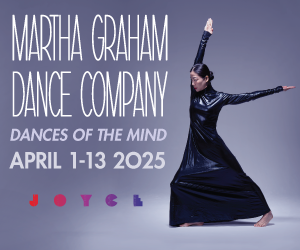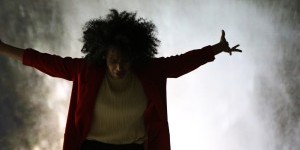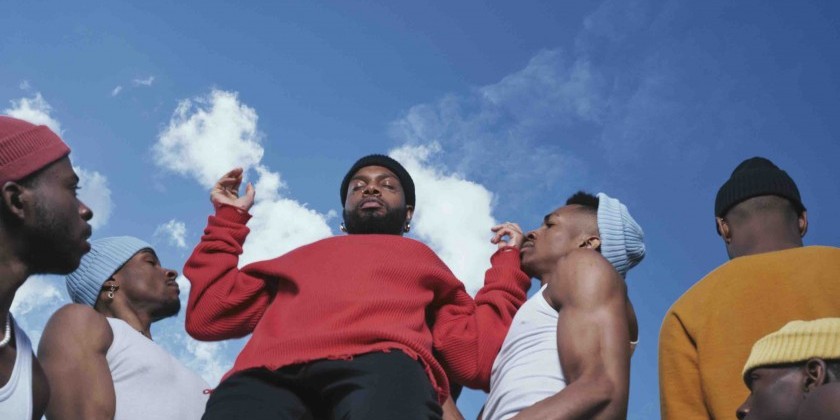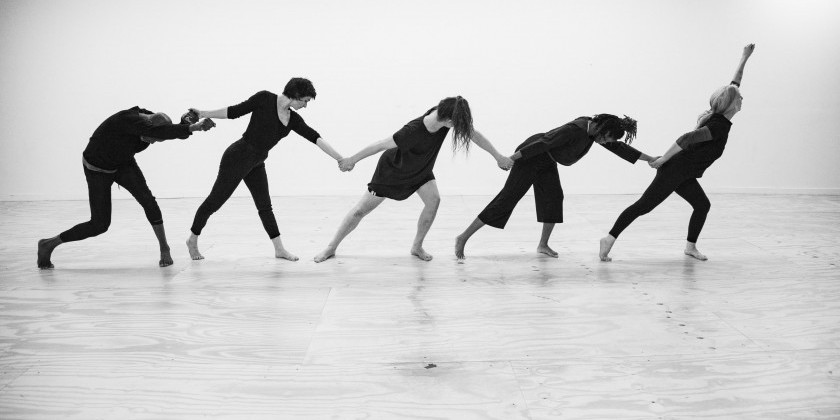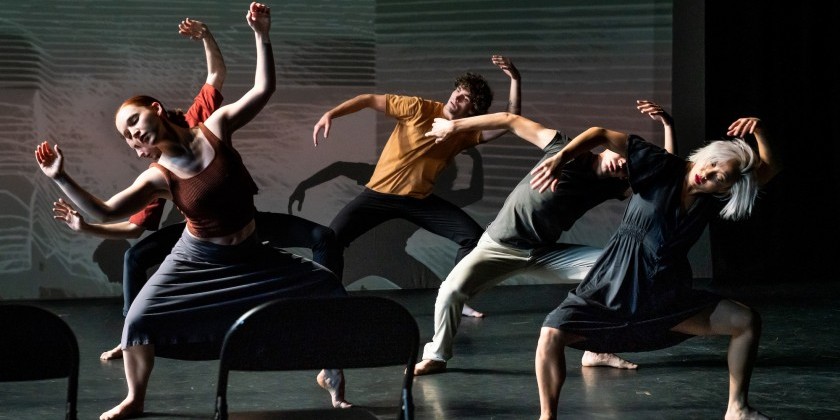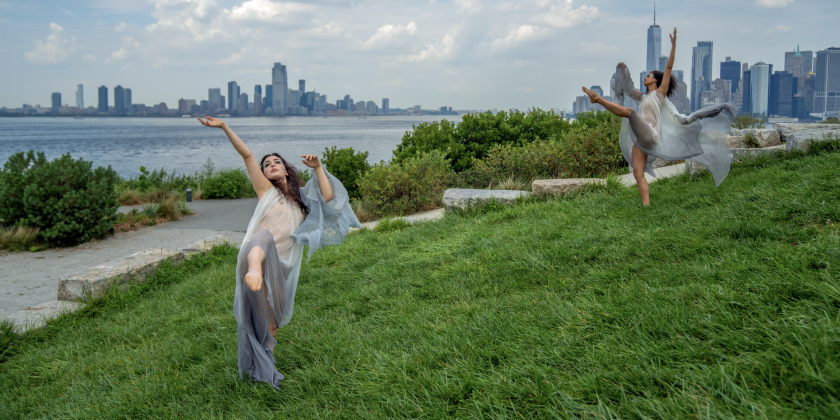IMPRESSIONS: Keely Garfield’s "Perfect Piranha" at The Chocolate Factory

Choreography: Keely Garfield
Performance: Keely Garfield, Paul Hamilton, Raja Feather Kelly, Emma Rose Brown
Original Music and Soundscore: Jeff Berman
Lights: Madeline Best
Wardrobe and Décor: Keely Garfield
Performances through December 9.
Tickets: $20, click on the Chocolate Factory website to purchase.
If you want me to explain what Keely Garfield’s Perfect Piranha means, then you’re asking the wrong girl. I can, however, tell you about this daffy collection of energetically performed vignettes, which had its premiere at The Chocolate Factory. Perhaps, you can decide for yourself if it means anything at all.
Perfect Piranha is loud, excessively so. Two men and two women including Garfield stomp, skitter, and saunter across and around the performing space. Sometimes, they gallop, like toddlers delirious from a sugar high. During these perambulations, their feet smack the floor as they lean into the movements, amplifying the volume to thunderous levels. The clamor obscures Jeff Berman’s disjointed score, which swings from chiming bells to a soundscape of a haunted house, complete with pouring rain, sinister laughter, and eerie shrieks.
Perfect Piranha is colorful, zanily so. The cast cycles through a variety of costumes that looks sourced from a community-theater fire sale. Raja Feather Kelly prances in a sequined sea-green jumpsuit, his hips swaying in a figure eight. Garfield, her lips tinted robin’s egg blue, lifts her snowman-emblazoned Christmas sweater to show her bare chest. Paul Hamilton and Emma Rose Brown sport bedazzled jackets, only to end with the rest of the group in ill-fitting unitards.
Perfect Piranha is wacky, perplexingly so. Over a half dozen scenarios, the dancers employ the detritus of every day — pedestrian movement, occasional text, and props like metal folding chairs or sheets of plastic — to lead us down a rabbit hole. Garfield swills water, which she threatens to spit at folks in the front row before spewing it at Brown, who cowers behind a plastic rectangle. At one point, the four take seats to melodramatically wail about someone named Tony. After a Jazzercise-inspired routine of ball changes and grapevines, the piece ends with them marching in a circle, holding hands.
“We’re all in it together,” Garfield says at the beginning. And it seems like they are in it together. The pace is blistering — the choreography, while not complex, is aerobic — but the dancers execute Garfield’s idiosyncratic demands with mellow bravura.
Their unreserved compliance to the rambling kookiness makes me wonder: Is this what sanity looks like in a crazy world? Your guess is as good as mine.




